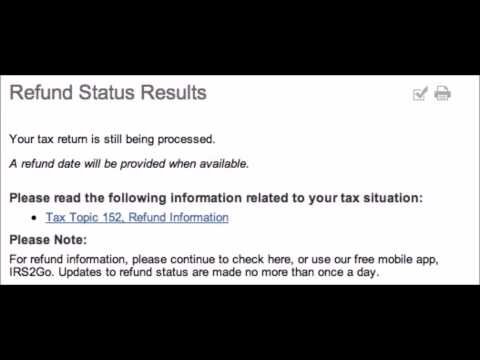Contents:


Number should be used on such interest-bearing trust accounts and not that of the OBF. An IOLTA – sometimes called an IOLA – is an interest-earning trust account that is specifically used to hold money that belongs to a legal professional’s clients. Using a trust account to handle things like retainers, settlement checks, and court fees ensures that the client’s money is kept separate from the professional’s business account.

Financial institutions are instructed to report the income to the IRS as received by the IOLTA Committee. Any lawyer who receives a 1099 for interest earned on the IOLTA account should contact the IOLTA Committee. IOLTA accounts were set up and established to ensure that any client funds are kept separate from other funds in a law firm’s business accounts. Any lawyer who handles client funds that are too small in amount or held too briefly to earn interest for the client must participate in the Interest on Lawyers’ Trust Accounts program. Related to the point above, attorneys must always have an accurate and up-to-date record where client’s funds are at any given time. While an increasing number of law firms accept payment electronically these days, some clients still prefer to pay by check.
Interest earned by pooling these funds in an IOLTA trust account is forward to the OBF by the financial institution where the account is held. Client or third party funds that are capable of earning net interest for the client or third party may not be placed in an IOLTA trust account. Funds of a substantial amount or which are to be held for a long period of time are usually placed in an interest bearing account for the individual client’s benefit. If funds are small in amount or to be held for a short period of time, they are usually commingled in a non-interest bearing checking account. This is done because the interest generated by these funds would not be enough to benefit the individual client.
Lawyers
For a list of Frequently Asked Questions , please see the Attorney IOLTA Guidelines Brochure which was approved by the Michigan Supreme Court. It provides information about the guidelines regarding financial institutions offering IOLTA accounts. Thanks to our three-way reconciliation, your bank accounts, trust accounts and QuickBooks Online will not only be in constant sync with one another, but also in line with state bar standards.
States and other jurisdictions in the United States have been developing IOLTA programs since 1981, when Congress changed the banking laws to allow some checking accounts be bear interest. WHICH OF MY LAW PRACTICE ACCOUNTS MUST BE ESTABLISHED AND MAINTAINED AS IOLTA TRUST ACCOUNTS? All general or pooled client trust accounts must be established and maintained as interest-bearing IOLTA trust accounts, interest from which is remitted to the OBF IOLTA program. General or pooled client trust accounts are those accounts that hold nominal or short-term deposits of funds of clients or third parities. It is very important that – when setting up an IOLTA account – you remember that since these are interest bearing trust accounts that hold client funds, they will always need to be separate from any operating account held by the law firm.
With Deposit Stability Paramount, Strategic Shifts Ahead for Banks – The Financial Brand
With Deposit Stability Paramount, Strategic Shifts Ahead for Banks.
Posted: Fri, 07 Apr 2023 07:00:00 GMT [source]
The Foundation will encourage banks not currently participating in the program to participate, especially if the Foundation has on hand completed Notice to Financial Institution forms to forward to the bank upon the bank’s agreement to participate. The Foundation will distribute materials to these banking centers so that lawyers and law firms who ask questions can be assisted. These financial institutions will also be encouraged to designate one IOLTA contact person who will serve as the liaison between that financial institution and the Foundation.
What is required of attorneys?
Complete your pro hac vice application online and pay the $375 fee by check or credit card. All open accounts must be included in the report even if no interest was earned or paid during the period. Please note that submitting this form does not form an attorney-client relationship.

Massachusetts Rule of Professional Conduct 1.15 and the 2009 IOLTA Guidelinesprovide rules and guidance regarding the Massachusetts IOLTA program and IOLTA accounts. For some firms, it may be much more realistic to turn to the experts for help when setting up an IOLTA trust account and making sure that all requirements are met, based on your state’s needs. Regardless of which state you’re in, you can’t, under any circumstances, use an IOLTA account as a savings account or an operating account, even if the money you withdraw from the IOLTA has already been earned. AccountDebitsCreditsTrust Bank Account $5,000.00Client Trust Liability $5,000.00Let’s say on that same day, your firm completes four hours of work on Doris’ file, at a rate of $100/hr.
Must lawyers negotiate fees and charges on IOLTA accounts with the bank?
IOLTA stands for “Interest on Lawyers’ Trust Accounts.” It is an integral part of the legal profession’s effort to support equal access to the justice system. Most Iowa lawyers use a “pooled” trust account, in which all of their clients’ funds are kept. Keeping track of the interest earned on the funds for each client would be a Herculean task, so instead the interest from the pooled account is sent to Iowa’s Lawyers Trust Account Commission on a monthly or quarterly basis. The interest which is remitted is combined with that from all other lawyers’ trust accounts in Iowa and distributed by the Iowa Supreme Court on an annual basis as part of the IOLTA grant process.
You elect a waiver of participation in the IOLTA program because you hold client trust funds, but the average monthly balance is less than $3,500. Funding from IOLTA is forwarded biannually to Pro Bono Indiana , which helps develop pro bono legal service programs for the poor throughout Indiana. PBI serves as a liaison between the lawyers providing pro bono services and the indigent individuals that need those services. In situations where an attorney believes that the client funds are to be held long enough and/or are of sufficient size to earn interest for the client net of administrative fees, such funds should not be placed into IOLTA accounts.

All the attorney or law firm must do is complete a Notice to Financial Institution form and forward the form to the Foundation. There is no change to the operation of the trust account, and the firm is no longer responsible for regular administrative expenses on the account. Remember – there are large fines and big consequences that can result from depositing client funds into your firm’s regular operating accounts. IOLTA – which stands for Interest on Lawyers Trust Account – are accounts that were established in 1981, after legislation passed that allowed client funds to be held in an interest bearing trust account until needed. Interest generated by IOLTA accounts forms an important source of funding for civil legal aid in Illinois. Some IOLTA-friendly merchants will charge fees to your firm’s operating account while depositing funds to the IOLTA account.
Upon approval of the Supreme Court of PA, the Board makes grants annually to non-profit organizations, law school clinical programs, and administration of justice projects that provide civil legal services free of charge to the poor and disadvantaged. Lawyers routinely receive client funds that are held in trust accounts for future use. When the amount is large or if the funds are to be held for a long time, lawyers place these funds in interest-bearing accounts for the benefit of their clients. A client’s retainer should never be mixed with a law firm’s operating account until a service has been billed for and it’s clear that the legal services provided are now due compensation. For any law firm that is holding short term client funds, you’ll need to set up an IOLTA account with a local financial or banking institution in your area. Proper management of a lawyer’s IOLTA (also commonly referred to as a « trust account ») is highly regulated by each respective state bar.
How Do I Know If I Need an IOLTA Account?
Since its inception, the IOLTA fund has allocated millions of dollars to RI organizations for legal services for the poor as well as help in the improvement of the administration of justice. Most banks treat IOLTA accounts as Negotiable Order of Withdrawal or other Business Interest Checking accounts. Banking regulations hold that attorneys can set up the accounts as NOW accounts even though the attorney-depositor may be a for-profit corporation, because the interest goes to a not-for-profit charitable entity. The next step is to deposit earned money into the attorney’s business account. The attorney now has the freedom to use the money for bills, expenses, or payroll. IOLTAs should not even include an ATM card with the account to prevent such mistakes.
Evergreen Retainers for Law Firms FAQ – The National Law Review
Evergreen Retainers for Law Firms FAQ.
Posted: Thu, 30 Mar 2023 07:00:00 GMT [source]
An IOLTA account will give you a place to deposit and safeguard client funds until they are needed, without having to a) open a separate account for these funds or b) worry about enmeshing them with your law firm’s operating accounts in any way. You are the designated “reporting attorney” for your law firm and are reporting on the firm’s IOLTA account, which holds all IOLTA-eligible trust funds. At this point in time, most banks throughout Indiana are familiar with IOLTA.
Deposit Checks Immediately
Real estate closings usually involve the transferring of funds between parties, and IOLTA accounts play an important role in how attorneys receive and disperse funds to their clients. The BBO regularly conducts a free Trust Account Training that explains the records required to be maintained for IOLTA accounts and other trust accounts. See the IOLTA Committee’s Calendar-Upcoming Events for upcoming dates and details. They understand the process for establishing one, and what sort of reporting will need to be done to keep the bank and your firm in compliance with your state’s IOLTA program. Once you’ve set up your account, you’ll want to make sure you maintain proper accounting records, showing all transactions that occur between the IOLTA account, the state IOLTA program, and your firm’s operating account. LeanLaw is the legal billing software for law firms built on QuickBooks Online that makes running a profitable law firm straightforward and simple for everyone involved.
- Interest earned by pooling these funds in an IOLTA trust account is forward to the OBF by the financial institution where the account is held.
- Your books will be ready for tax season and you can work confidently knowing your IOLTA is handled right.
- Whatever the reason, borrowing from an IOLTA account carries stiff penalties, and is one of the most common ways to get disbarred.
- Good accounting software will also make this process much easier for you as well.
- Meanwhile, report that you have deposited your IOLTA-eligible trust funds in an interest-bearing account and list the account information.
- The Foundation will forward the completed form to a designated individual at the attorney’s financial institution.
Any financial institution that participates in the Trust Account Overdraft Notification Program required under the Indiana Rules of Professional Conduct may be used. As of now, the Foundation is unable to accept unclaimed money in an IOLTA account. Such funds should be reported to the Unclaimed Property division of the Indiana Attorney General’s Office. Out-of-state attorneys seeking to enter their appearance on a Pennsylvania case must pay an admission fee of $375 per case to the IOLTA Board prior to filing the motion with the court.
In short, you should never make assumptions or take chances when it comes to handling your client’s funds. IOLTA programs have taken a leading role in funding a number of innovative programs that have had a positive impact on the delivery of legal services to those living in poverty. These include loan repayment assistance programs, state-based legal information websites, and legal assistance hotlines. An IOLTA is a pooled checking account allowing the attorney to deposit funds from several clients into one place in order to earn interest.
These what does mm mean funds are nominal in amount or held for a short period of time. This rule stated that the sole beneficiary of the interest on the accounts must be the Nebraska Lawyers Trust Account Foundation and these accounts must be readily available for withdrawal. Indiana’s Interest on Lawyers’ Trust Accounts program requires attorneys to place commingled nominal in amount and/or held for short-term Indiana client trust funds into interest-bearing trust accounts. Such monies could not earn income for the client exceeding the costs incurred to secure such income. Financial institutions periodically remit the interest earned on these funds to a designated administrative body, which in Indiana is the Indiana Bar Foundation.
Then, once approved by Client A, the $480 is considered earned but cannot be withdrawn directly from the IOLTA account. Instead, the money is then transferred to the firm’s business account, while the remaining $6,520 from the retainer remains in trust. Since IOLTA’s inception, a number of court cases have arisen in which parties argued that IOLTA programs violated the Fifth Amendment by resulting in an unconstitutional taking. Whatever it is called, we need to make sure with the bank that the fee cannot be charged to that account. A separate operating account or credit card has to pay all fees so that the customer’s money is never touched. To prevent misappropriating funds from other clients, remember to only charge your clients for fees directly relating to their trust account.
Today’s money market account rate roundup: Rates move up … – USA TODAY
Today’s money market account rate roundup: Rates move up ….
Posted: Tue, 28 Mar 2023 07:00:00 GMT [source]
The difference is simply the interest – how much it accrues and who gets it. Most banks treat IOLTA accounts as Negotiable Order of Withdrawal (« NOW ») or other Business Interest Checking accounts. Every single transaction in and out of your IOLTA must be accounted for, no matter how small. And you should be able to supply accurate and up to date records for all of your trust accounts—not just IOLTA—to the state bar upon request.
